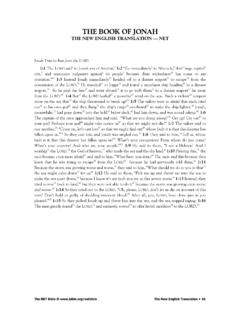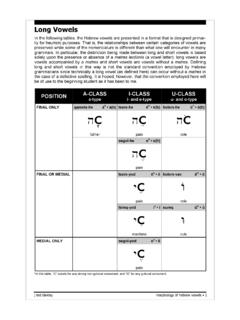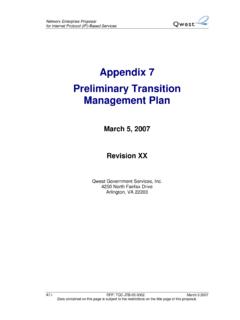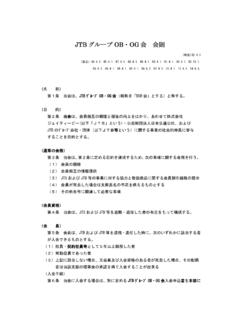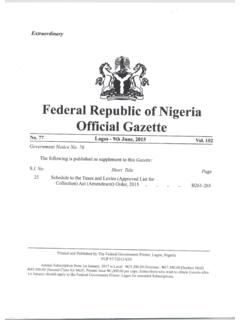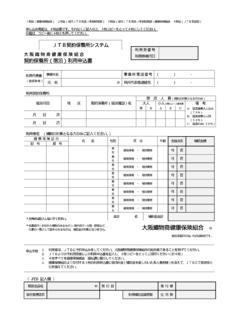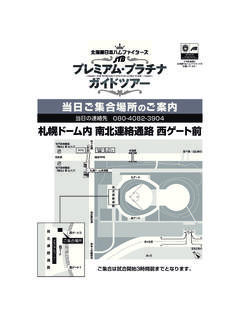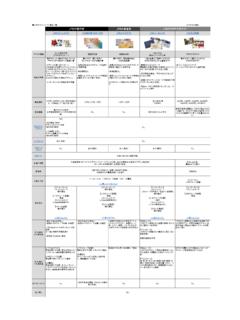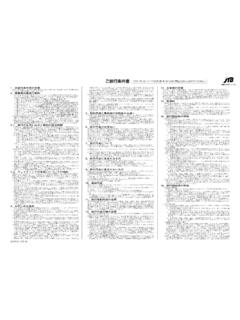Transcription of Bibliography Historiography - Blakley Creative
1 J. Ted Blakley Historiography Resources 1 Historiography Bibliography I am by no means an expert in the field of Historiography (no surprises there). The following annotated Bibliography simply includes some of those works that I found particularly helpful in my research for my dissertation. These are works that I found edifying on a variety of levels both academically and personally. They address central issues concerned with the nature of history, they provide a vo-cabulary and conceptual frameworks for understanding and talking about history, and they also pro-vide insight into some of what is being currently discussed in the wider discipline of Historiography .
2 Underlined works are those that I most recommend as introductions to Historiography . Works with an asterisk (*) are those works on my short list of recommendations. My highest recommendation would go to Telling the Truth about History with the double asterisk (**). Appleby, Joyce. The Power of History. American Historical Review 103 (1998): 1 14. **Appleby, Joyce, Lynn Hunt, and Margaret Jacob. Telling the Truth about History. New York: W. W. Norton, 1994. Part One Intellectual Absolutisms 1. The Heroic Model of Science 2. Scientific History and the Idea of Modernity 3. History Makes a Nation Part Two Absolutisms Dethroned 4.
3 Competing Histories of America 5. Discovering the Clay Feet of Science 6. Postmodernism and the Crisis of Modernity Part Three A New Republic of Learning 7. Truth and Objectivity 8. The Future of History Reviews and Discussions of Telling the Truth about History Bunzl, Martin. Pragmatism to the Rescue? Journal of the History of Ideas 56 (1995): 651 59. Higham, John. The Limits of Relativism: Restatement and Remembrance. Journal of the History of Ideas 56 (1995): 669 74. Appleby, Joyce, Lynn Hunt, and Margaret Jacob. Truth, Objectivity, and History: An Exchange. Journal of the History of Ideas 56 (1995): 675 80.
4 Bunzl, Martin. Real History: Reflections on Historical Practice. London: Routledge, 1997. Bunzl is a philosopher of history and in this book of connected essays attempts to address some of the philosophical concerns of Historiography : objectivity, facts, and realism vs. anti-realism. Bunzl argues for a realist, though not an ob-jectivist, conception of history. My thesis is rather modest. It is this: it is hard not to be an objectivist in practice. But the kind of objectivist you end up being does not embrace all of the notions of objectivity which Novick writes about.
5 Separating the wheat from the chaff is the intellectual work of this project (2). *Carr, Edward H. What Is History? London: Macmillan, 1961. For forty years this has been a standard text on the question of history. What I found particularly helpful were Carr s discussions of history as a social process. History, then, in both senses of the word meaning both the enquiry conducted by the histo-rian and the facts of the past into which he enquires is a social process, in which individuals are engaged as social beings.. The reciprocal process of interaction between the historian and his facts, what I have called the dialogue J.
6 Ted Blakley Historiography Resources 2 between present and past, is a dialogue not between abstract and isolated individuals, but be-tween the society of today and the society of yesterday. History, in Burckhardt s words, is the record of what one age finds worthy of note in another . The past is intelligible to us only in the light of the present; and we can fully understand the present only in the light of the past. To enable man to understand the society of the past and to increase his mastery over the so-ciety of the present is the dual function of history (49). Cmiel, Kenneth. History against Itself. Journal of American History 81 (1994): 1169 74.
7 Collingwood, R. G. The Idea of History. Oxford: Clarendon Press, 1946. Haskell, Thomas L. The Emergence of Professional Social Science: The American Social Science Association and the Nineteenth-Century Crisis of Authority. Urbana: University of Illinois Press, 1977. Though I didn t get a chance to read this directly though references were made to it in the secondary literature. My sense is that one of its values is its discussion of the concept of profes-sionalization and how it operates within a discipline. I expect it also demonstrates why post-modernism is such a challenge not only to historical profession but to all professionalized disciplines.
8 In the last third of the nineteenth century, a need for the professionalization of the social sciences arose in the United States due to a crisis in intellectual authority and a desire for order as a result of the Civil War. People imagined that professionalization could reestab-lish a place of authority and provide stability and a sense of national unity. Sought were communities of the competent who would identify competence, cultivate it, and confer au-thority on those who possessed it in accordance with .. criteria that were not in any obvious way personal, partisan, or particular. The criteria of judgment had to seem truly a product of consensus among the competent, beyond the power of any individual, clique, or party to con-trol, and hence impersonal, objective, value-free not mere opinion but truth (89).
9 Haskell, Thomas L. Objectivity Is Not Neutrality: Rhetoric vs. Practice in Peter Novick s That Noble Dream. History and Theory 29 (1990): 129 57. Haskell reviews That Noble Dream and, in contrast to Novick who regards the ideal of objectivity as essentially confused, regards ob-jectivity, properly understood, as a worthy goal for historians (130). Haskell argues that while Novick s rhetoric is one of eschewing the notion of objectivity, in actual practice his work passes with flying colors what Haskell regards as all the standards of objectivity. Haskell sees that where he and Novick are different is not so much in how each practices history but in how each speaks about the practice of history.
10 Novick s advice to the profession evidently is to cut loose from the ideal, declaring it obsolete even while silently perpetuating many of the practices associated with it. In contrast, my inclination is to protect those practices by con-tinuing to honor the ideal, meanwhile ridding it of unwanted connotations. Fatefully dissimi-lar though the two strategies may be, they do not aim at very different outcomes in terms of historical practice (131). One of the most valuable things about this article is the way the discussion makes a distinction between a scholar s rhetoric and their actual practice, such that, two scholars may actually engage in quite similar practices and so produce quite similar products though they may choose for a variety of reasons to conceptualize and describe their tasks in quite different, even opposing ways.
